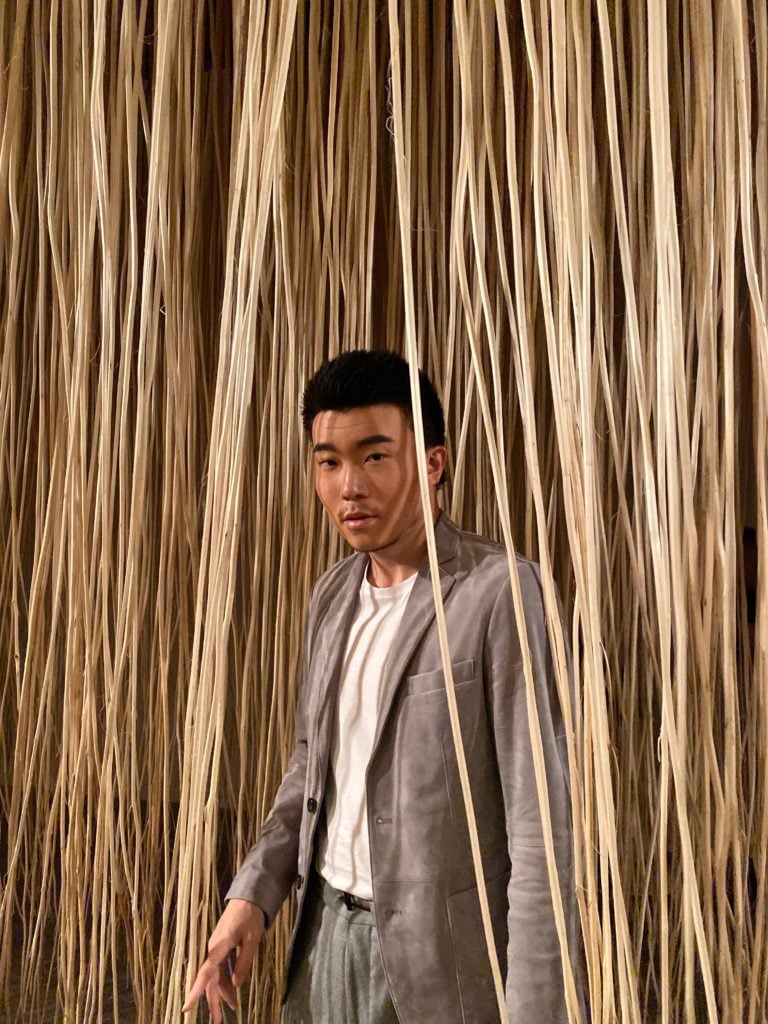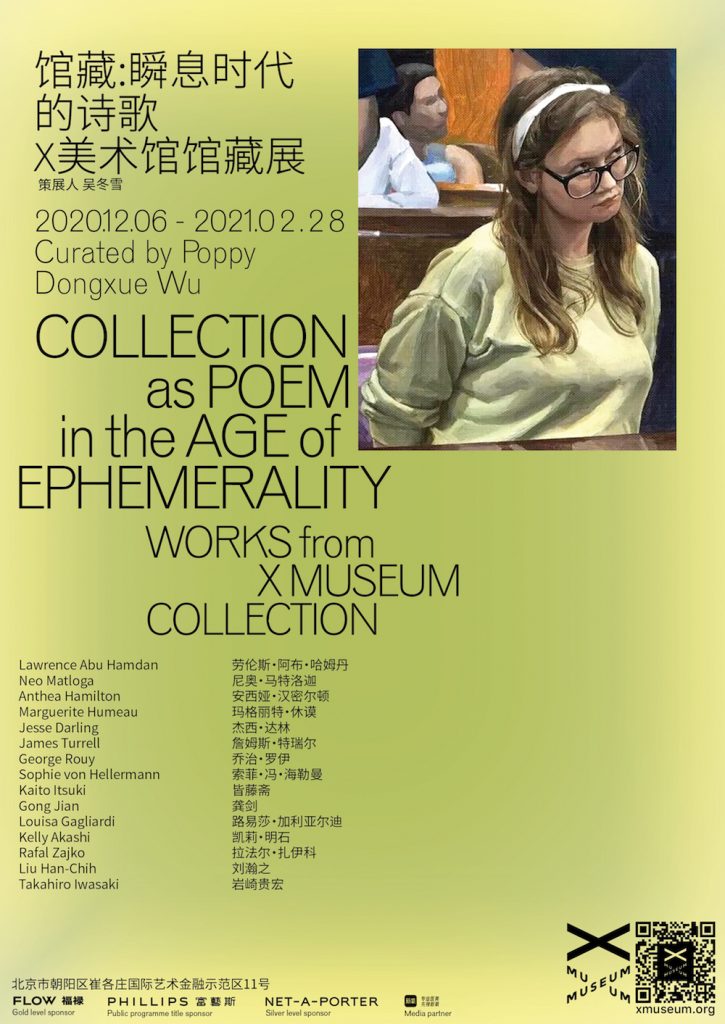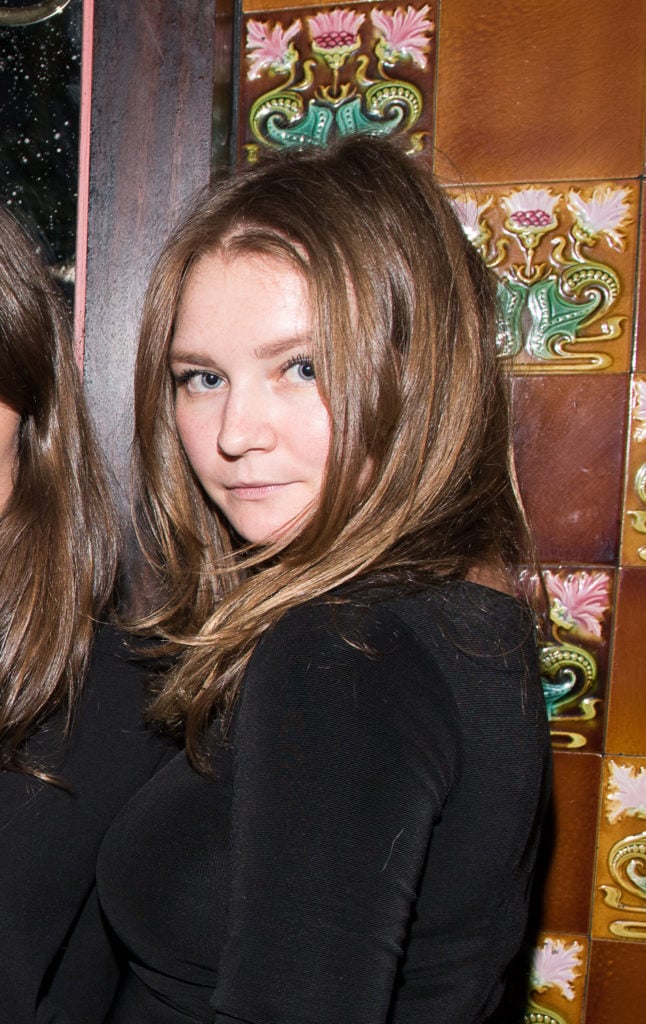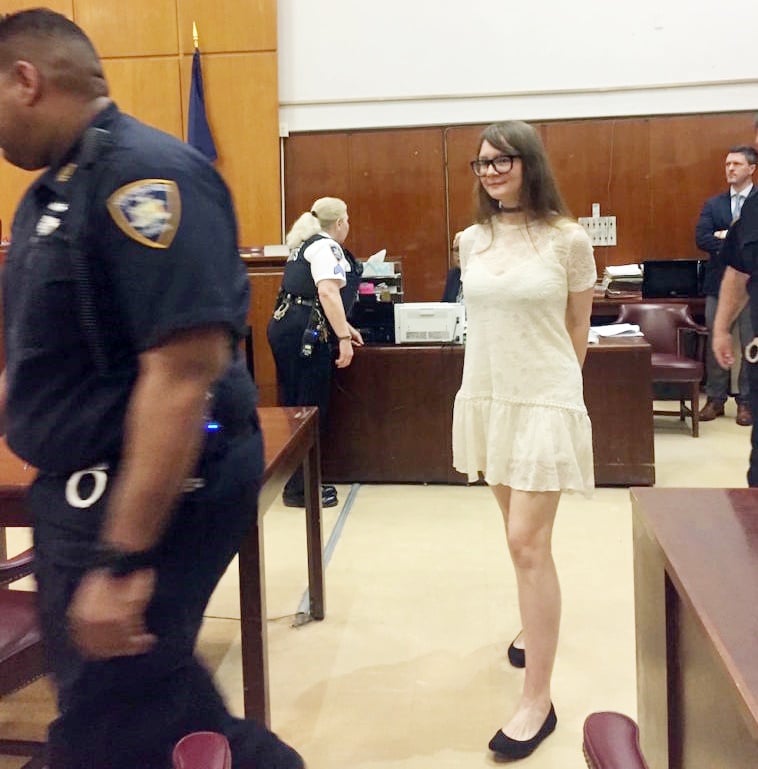People
Convicted Fraudster Anna Delvey Conned Collector Michael Xufu Huang. That Didn’t Stop Him From Hanging Her Portrait in His New Museum
Huang is now a character in a TV series about the notorious art-world scammer.

Huang is now a character in a TV series about the notorious art-world scammer.

Eileen Kinsella

It’s been a busy year for the 26-year-old art collector Michael Xufu Huang. In May, he pulled off what now seems like an unthinkable feat: opening a new museum in Beijing during the global health crisis.
He’s also been thrust into the spotlight for another reason. Huang recently discovered that there’s a character based on him in at least one of several new television series about the exploits of the convicted Russian con artist Anna Delvey. Huang was one of the influential figures Delvey befriended during her early days on the New York art scene, where she scammed wealthy investors and socialites by claiming she was an heiress about to come into a $60 million inheritance when she turned 25.
Now, in China, there has been an inordinate amount of attention on Huang “because I’m the only Chinese person involved in the story,” he tells Artnet News.
So it piqued Huang’s interest when he came across a series of paintings by the Chinese artist Gong Jian, who had found inspiration and a muse in Delvey. Jian painted the con woman the way she initially appeared in court, disheveled and wearing drab brown prison garb.
Huang bought the work, which now hangs in the collection of his new X Museum in Beijing. It appears in an exhibition of works from the museum’s collection titled “Collection as Poem in the Age of Ephemerality,” curated by Poppy Dongxue Wu, that opened on December 6.

Huang doesn’t mind seeing the portrait of Delvey because he ultimately considers himself lucky. Not only did his exposure top out at around $3,000—Delvey’s “best friend,” meanwhile, got bilked out of $62,000—he caught on to some red flags early in the game.
Huang was an art history student at the University of Pennsylvania when he first met Delvey, whose real name is Anna Sorokin, at a dinner in New York City. A gallerist from Pace encouraged Huang to meet her since they were both planning to establish their own private art museums.
“She showed up in a black dress and looked really fashionable,” said Huang. That first night, Huang and Delvey, along with with several other affluent young scenesters, continued socializing after the dinner. “She always wanted to party,” he said.
Huang says he found it odd that Delvey always seemed to know who everyone was at the party, pointing out various photographers or social-media influencers to him, but that she didn’t actually know them. He also found it strange that she lived in a hotel instead of her own apartment.

Anna Delvey attending the first Tumblr Fashion Honor presented to Rodarte at the Jane Hotel on September 9, 2014. Photo by Dave Kotinsky/Getty Images.
A few more nights out ensued, during which Huang noticed that Delvey never used credit cards. “She’d take out a bag of cash” when it came time to pay, he said.
When Delvey learned that Huang would be attending the 2015 Venice Biennale, she asked where he was staying. Knowing that there was scarce availability at hotels, Huang agreed when Delvey asked if he could arrange booking a room for her when he made his reservation. She promised to pay him back and Huang says he didn’t think twice.
The Venice trip itself was uneventful except that Delvey seemed to have no party or gallery invitations of her own. Instead, she tagged along with Huang wherever he went.
After Venice, some 18 months passed before he heard from Delvey again, when, “out of the blue,” an invitation to a birthday party she was throwing herself at the Lower East Side restaurant Sadelle’s appeared.
Huang noted that everyone at the party seemed to be “someone,” and many from the worlds of real estate, finance, and venture capital. But in chatting further with his fellow guests, he learned that most did not actually know Delvey, but had been invited by a public-relations specialist she had hired.

Anna Delvey entering court on the final day of her trial. Photo by Eileen Kinsella.
More alarming was that upon his return to school at Penn, a restaurant employee from Sadelle’s sent him a direct message on Instagram. She recognized him from one of Delvey’s social-media posts from the evening and wanted to know if he had her contact information. She had given the restaurant a fake phone number and credit card and the dinner remained unpaid.
That’s when Huang thought to himself: “Oh shit! She’s definitely not legitimate, or else she’s having financial problems. It confirmed all of my doubts.”
Huang put pressure on Delvey to pay back the money he had shelled out for her hotel in Venice, reminding her that a year and a half had gone by. When she finally repaid him, it came from a Venmo account operating under a different name. Huang then blocked Delvey and that was the end of their friendship, he says.
In mid-2018, he started seeing media reports about the fake heiress in the New York Post, New York magazine, and Vanity Fair. Soon thereafter, he realized that a TV series must have been casting his character because an influx of “Asian male actors started following me on Instagram,” he says. (Huang says he will decide whether or not to watch the show depending on whether “the Asian actor portraying me is good looking or not.”)
Last spring, Delvey was convicted of nearly all the charges against her, including three counts of grand larceny. She was sentenced to four-to-12 years in federal prison (including the 561 days she already served on Riker’s Island awaiting trial).
This past fall, Delvey, whose Instagram feed is now populated with doodles depicting her life in prison, was granted parole. Her attorney, Todd Spodek, confirmed the news in October, adding that “the actual release won’t be until early next year.”
Meanwhile, life for Huang has gone on. His new X Museum—which is the collector’s second time co-founding a private museum in China—kicked off with a well-received triennial in May. And now, he has just unveiled the second round of major exhibitions, including a solo show by the 27-year-old British artist Issy Wood, titled “Good Clean Fun,” in addition to the show of works from the museum’s collection, which opened earlier this week.
The flyer for the show pictures Jian’s painting of Delvey in court, which Huang thinks is the “most iconic” image from the artist’s series on the convicted fraudster.
The image “speaks for the whole experience,” Huang says. “I paid more for this work than the hotel charges I apparently lost.”